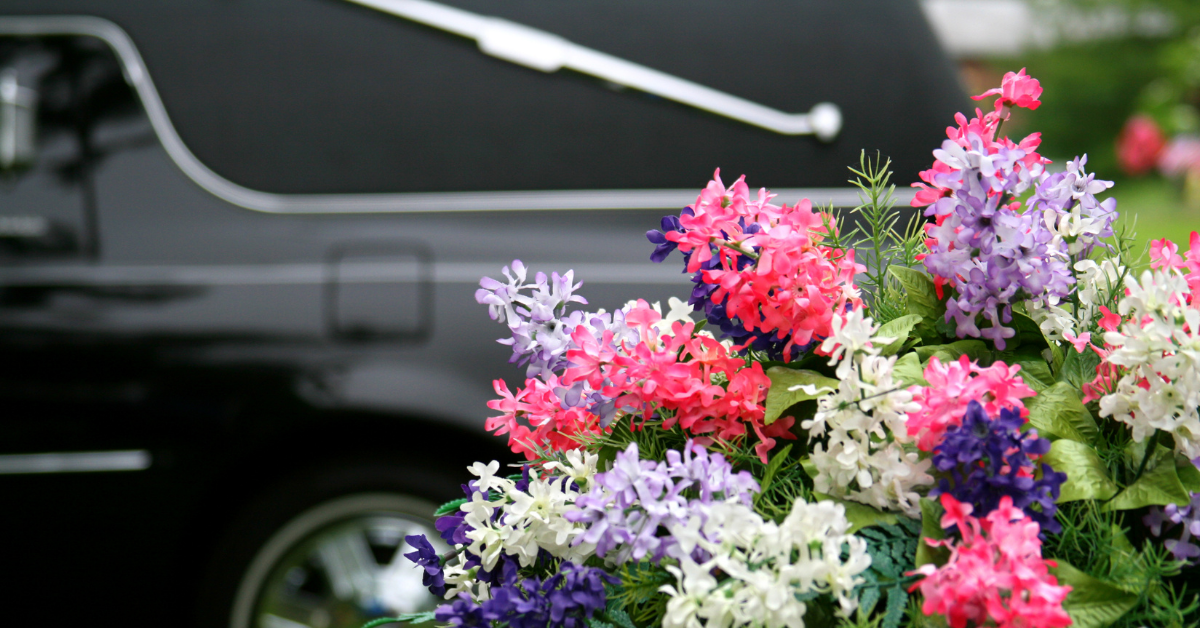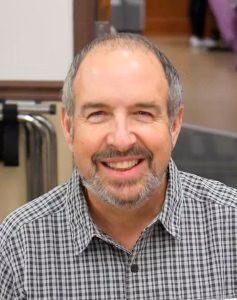“I love being with people who are dying!”
How many times have you heard that statement? Probably none. The opposite is the norm. Most people want to avoid being with someone who is dying. They thing things like, “What do I say? What do I do?” It can be uncomfortable and scary. It can feel weird. Isn’t it taboo to even talk about it?
Would this statement sound better? “I am passionate about the end of life.” Conversations can instantly turn awkward when I say this.
But this is who I am. For example, I collect funeral flags. On the east coast of the United States where I live, it is customary to hold funeral services in a place of worship or in a funeral home. Following the service, the participants drive their cars in procession to the graveside, where there is a committal service before the burial. In order to identify the cars as being part of the funeral procession, magnetic flags are placed on the hoods of the cars. These flags come in various colors and have the word “funeral” written across them. I collect these funeral flags, displaying them on my desk; my desk is currently filled with them. I have funeral flags of various shapes and colors in view of everyone who walks in my office.
I love what I do; I love being with people who are dying. I am passionate about end of life.
I wasn’t always this way. When I began working as a hospice chaplain, I was also caring for my dying father. Knowing I would spend most of my working hours with people who were dying, I was concerned. How would I handle it? Would I be able to handle it? I imagined it would be difficult and I wondered if I would get burned out in a short time. I was committed to being there for Dad, and I wondered if would also have the emotional energy to give to the dying patients and their families.
Much to my surprise, I found that I loved what I was doing. I loved being with people who were dying. As a matter of fact, I was drawn to them. As time went on, I realized that I preferred being with the dying more than the living (those who do not know they are dying.)
Eventually, I came to realize that there were numerous reasons for this. The primary reason was because the dying have so much to teach us. As Mitch Albom writes in Tuesdays with Morrie, “Once you learn how to die, you learn how to live.”
I love being with people who are dying because they teach me the way I want to live my life everyday. They know what is important, and they don’t waste time on things that are not. They focus on things that really matter. For over 20 years I’ve spent the majority of my time with the dying and the grieving. I have gathered about 25 of these life lessons that the dying have taught me in an upcoming book Dying to Live: Lessons Learned from the Dying. I can honestly say I live my life differently now.
The foundation of each one of these lessons is the desire to live life fully, for as much time as we have. Life on this earth is short for each one of us—a lot shorter for some than others. The Covid-19 pandemic has brought this reality to our minds like never before. We see or hear about young, healthy people dying, and we don’t know who will be next. “It could be me,” many of us realize.
Ira Byock, in his book The Four Things That Matter Most puts it this way, “We live every moment on the brink. We are, each one of us, at every moment, a heartbeat away from death.” To many, these words bring fear. The mere mention of the reality of death and dying brings fear. To many, the collecting of funeral flags is fearfully absurd.
Yet in the midst of that fear, my prayer is that this current reality will also cause each of us to live the life that we have even more fully.
Facing the reality of death and dying can encourage us to make the most of every single day. In addition, it can provide opportunities for growth as we prepare for eternity. Seeing our earthly lives from an eternal perspective helps us to grapple with what is to come, whether death is a moment or many decades away.
How well are you doing with this? Do you live fully each day? Do you shy away from thinking about the end of your earthly life? It is not necessary for you to collect funeral flags. I have that covered. But it is important for each one of us to learn how to live life fully, even in the midst of a pandemic.
In the 1994 movie, Shawshank Redemption, Andy Dufresne told Red Redding that it was a simple choice to “get busy living or get busy dying.” Which one are you busy doing?
Your turn
How do you feel after reading this blog post? Are you comfortable talking about death and dying? Who is someone you could have a first conversation with, sharing your thoughts about death? For more, the author has a free resource available, Ministering to Grieving People. To go deeper on this topic, join the author for this online course.



